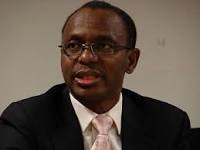
Continued from yesterday
The proposed Kaduna law is not focused on a secular purpose. It is aimed at regulating the two religions. It does not pretend that its only purpose is to regulate Christianity and Islam in the state. Section 10 of the constitution that prohibits the government from establishing any religion discourages government from dabbling into religion beliefs and practices. Providing for how religious people should engage in one of the critical forms of religious expression – preaching – is a prohibited headlong plunging into the waters of religion. If the law addressed a secular purpose like the level of noise permitted in a neighbourhood and consequently affected religious worship, it would have been a pursuit of secular purpose and the only question would have been whether the law laid excessive burden on religious belief and practice. In this case the proposed law directly regulates religious practice. It is not a reasonable response to a social problem. It is a wholesale regulation of religion. This contradicts Section 10 of the Constitution.
Free exercise of religion:
The proposed law does not pay serious consideration to the real essence of freedom of religion, which is the right of free exercise. The freedom of religion has now become customary international law. This means that the obligation to protect and guarantee to everyone the freedom of religion cannot be validly excused by national laws. Nigeria, like other countries, has recognised the freedom of religion in its Constitution, clearing any hurdle to its enforcement by courts. Section 38 of the Constitution guarantees the freedom of religion of every citizen and resident of Nigeria in the terms of “freedom of thought, conscience and religion, including freedom to change his religion or belief, and freedom (either alone or in community with others, and in public or in private) to manifest and propagate his religion or belief in worship, teaching, practice or observance”.
The history of the struggles for freedom of religion enlightens us on what the ‘free exercise clause’ means. The fight between the dogmatist Christians and enlightenment thinkers lies at the heart of the modern democratic state. The enlightenment tradition which is the basis of Westphalian state replaces religious feud with tolerance. The doctrine of religious tolerance championed by philosophers like John Locke and Jean Jacques Rousseau and statesmen like James Madison and Thomas Jefferson established the link between conscience, thought and religion as the fundamental fact that the proper religion of every man or woman should be left “to conviction and conscience of every man.” Every man or woman should also be allowed to determine the appropriate form to practise that religious form.
Free exercise of religion requires that the state does not put any obstacle or impediment in the exercise of the freedom of religion. The state does not need to facilitate freedom of religion but it must not impede it. The doctrine of free exercise, therefore, guarantees to every person the right to determine what beliefs he or she holds and liberty to hold such beliefs and practise them in company of other believers. The trend of judicial articulation of the free exercise has always prioritised freedom of thought and conscience over religious practices. The argument here has been that the freedom of thought and conscience does not entertain any derogation. It is the most fundamental of component of freedom of religion. Practices can be regulated as long as the government pursues secular purpose and does not unduly restrain the practice of religion. As the U.S. Supreme Court puts it in Cantwell v. Connecticut 310 U.S 296 (1940), the free exercise clause “embraces two concepts, – freedom to believe and freedom to act. The first is absolute but, in the nature of things, the second cannot be. Conduct remains subject to regulation for the protection of society… In every case the power to regulate must be so exercised as not … unduly to infringe the protected freedom”.
• To be continued.
GUARDIAN
END

Be the first to comment